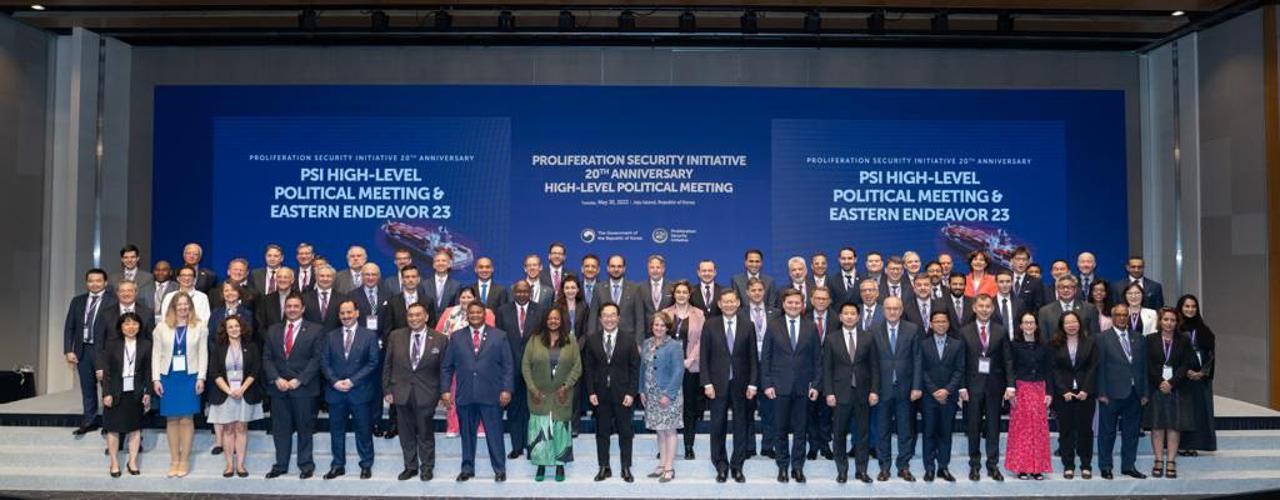ASTANA – First Deputy Minister of Foreign Affairs of Kazakhstan Kairat Umarov spoke on the country’s efforts in non-proliferation and disarmament of weapons of mass destruction (WMD) during a May 30 Proliferation Security Initiative (PSI) 20th anniversary high-level political meeting in Jeju Island, South Korea, reported the ministry’s press service.

Photo credit: Foreign Ministry’s press service
The event brought together high-ranking representatives of diplomatic and defense ministries of the PSI state parties from Asia, Europe, the United States, Africa and the Pacific region, as well as representatives of international organizations.
Addressing the meeting participants, Umarov said Kazakhstan is continuously improving its national export control system, which allows for effective monitoring of the circulation of sensitive materials and dual-use technologies.
On Feb. 28, Kazakhstan adopted a new law on the control of specific goods, taking into account all requirements stemming from Kazakhstan’s international obligations, as well as the latest international practice in nonproliferation of WMD components and means of their delivery.
Umarov also focused on Kazakhstan’s initiative to establish the International Agency for Biological Safety (IABS) and emphasized the importance of the Central Asian Nuclear-Weapon-Free Zone (CANWFZ) activity, which prohibits the deployment, transit and production of WMD in the region.
On the sidelines of the event, Umarov held bilateral meetings with Bonnie Jenkins, the U.S. Under Secretary of State for Arms Control and International Security and high-level representatives from Australia, Palau, Philippines, Poland and South Korea.
PSI, launched by U.S. President George W. Bush in May 2003 in Krakow, Poland, is an informal network of states seeking to strengthen their national and collective capacities to interdict materials related to WMD.
Currently, 106 states have declared support of the PSI goals and principles. Kazakhstan officially joined the Krakow initiative in July 2005.
